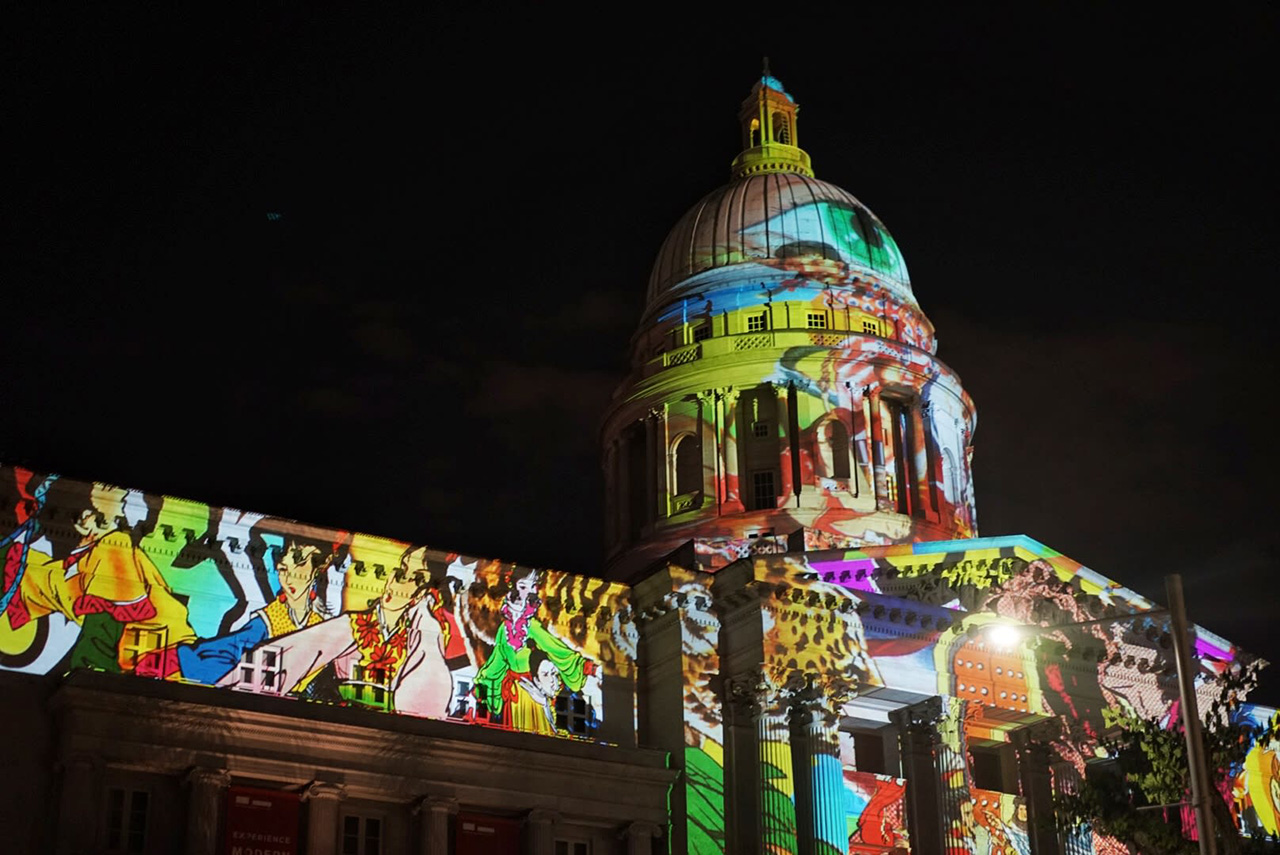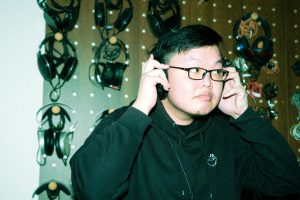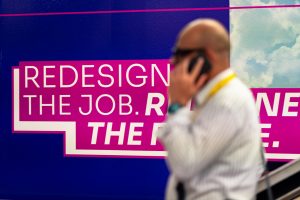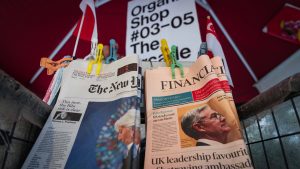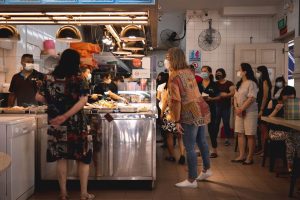When the Esplanade took down Vincent Leow’s sketch of a naked man seemingly riding on a cockerel, it became evident that invisible barriers to freedom of artistic expression have become harder than ever to break down.
Last Sunday, a town hall for a new Nominated Member of Parliament (NMP) to represent the arts sector presented an opportunity for candidates to address this issue.
Out of the 89 people in attendance, majority – about one-third – were theatre practitioners, as seen from a show of hands. The rest comprised musicians, visual artists, writers and a single lone voice from the traditional arts.
Hence, any voices and opinions raised during the town hall weren’t exactly a reflection of the arts community as a whole. How a playwright would like an arts NMP to serve his interests would not be the same as an erhu player in a Chinese orchestra, for instance.
And we know that the drama and writers’ groups tend to be the loudest, whether on social media or other platforms. These certain individuals were also present for Sunday’s discussion. (Chatham House rules prevent me from identifying any member of the audience or attribute any statements.)
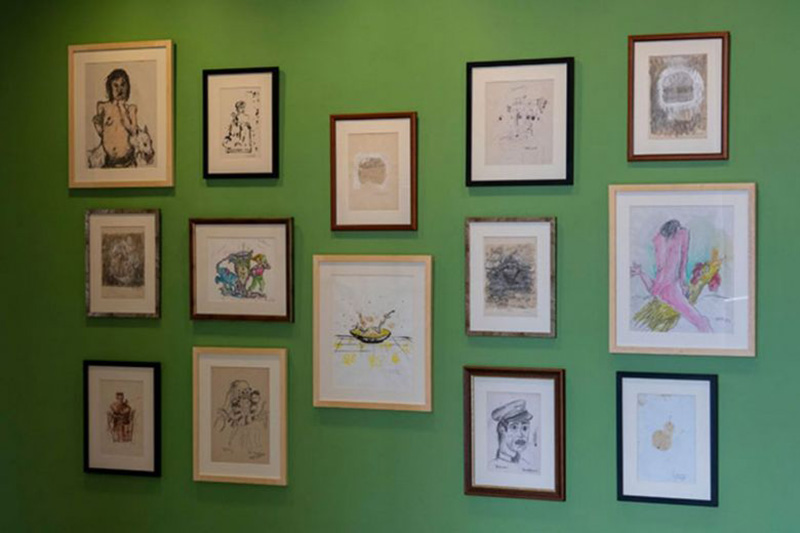
While some were keen for the new arts NMP to protect the community and serve the artists’ interests, at least one person described the entire process as “futile”. A few others also displayed scepticism towards whether the new arts NMP could even represent them in the first place.
So unfortunately, the town hall was neither productive nor conclusive. It only confirmed one thing: the arts community is too fragmented to ever be united on its interests and objectives.
We may not even need to consider a successor for Kok Heng Leun when he steps down at the end of his term in September, simply because the arts NMP role is largely a futile one.
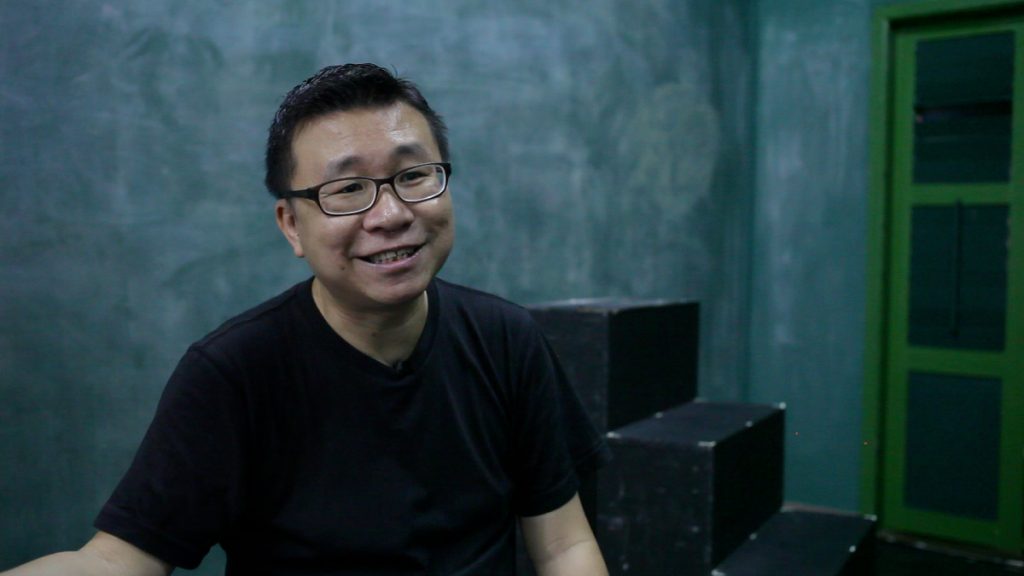
Ms Felicia Low, a lecturer at the School of the Arts (SOTA), aims to professionalise the creative field and improve the job prospects for young Singaporeans. On the other hand, Woon Tien Wei, a visual artist who founded the social enterprise Post-Museum, has set his sights on a number of unspecified causes – citing his interest and participation in previous activism movements like the conservation of Bukit Brown cemetery and the Sungei Road flea market.
It was evident that they were inexperienced and uninformed about the legislative and administrative duties of an NMP. Throughout the session, I got the distressing vibe that this was a comedy short about two job applicants with absolutely no clue about the company or what they had signed up for.
At one point, Mr Woon even questioned the standardisation of the dress code in parliament. I hope it was just his poor attempt at cracking a joke, though it’s worrying that even humour cannot save an overall shaky performance at conveying his ideas.
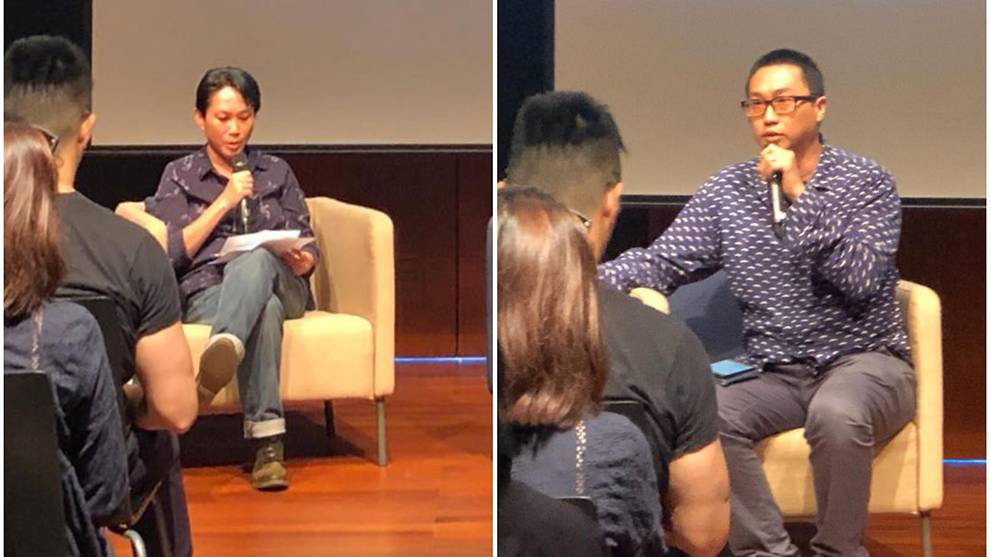
The first question raised from the floor was about bridging the divide between the public and the arts community, which has often been criticised as being “insular”.
Whether it’s the presence of a safe space for artists to practise, collaborate and seek affirmation, or resentment towards criticism from outsiders, artists tend to group together and operate in their small circles. This was already demonstrated by the imbalanced composition of the audience.
Such behaviour only worsens any misunderstanding about the arts, and is undoubtedly the most important issue today, hence the question.
Yet in response, Ms Low and Mr Woon resorted to vague terms (“bread and butter issues”) and big-picture ideas (“make the arts a valuable part of Singaporean’s lives”).
When pressed about what they would do with regard to Vincent Leow’s case, once again neither candidate could give a reassuring answer.
Judging by the questions raised and tone of questioning, it seems that the audience wasn’t enamoured by what they had seen and heard. Towards the end of the town hall, someone asked about the “optics” of either candidate appearing in parliament – perhaps suggesting that he wasn’t keen on either of the two artists representing him and his community.
It’s one thing to be an activist fighting for various causes outside the walls of parliament, and a whole different ball game once inside as an NMP.
After all, the only way to prevent another Esplanade cock-up (pun intended) is to fundamentally change societal attitudes towards the arts and its value in our country. And the new arts NMP should be challenging the status quo with holistic ideas, not simply focusing on discrete issues.
Previous arts NMPs have left quite the mark during their short-lived political careers (each term only lasts two and a half years). Mr Kok has not just championed an arts education in schools, but also been one of the loudest voices in curbing the growing inequality problem in Singapore. Janice Koh, who served from 2012 to 2014, was a strong proponent for local music and a critic of arts regulation and censorship.
These are big shoes for the next arts NMP to fill, and granted, 30 months is certainly not enough time to guarantee the passing of a Bill in parliament. Having different NMPs take over the position after a short period of time can also be disruptive to the development of the community.
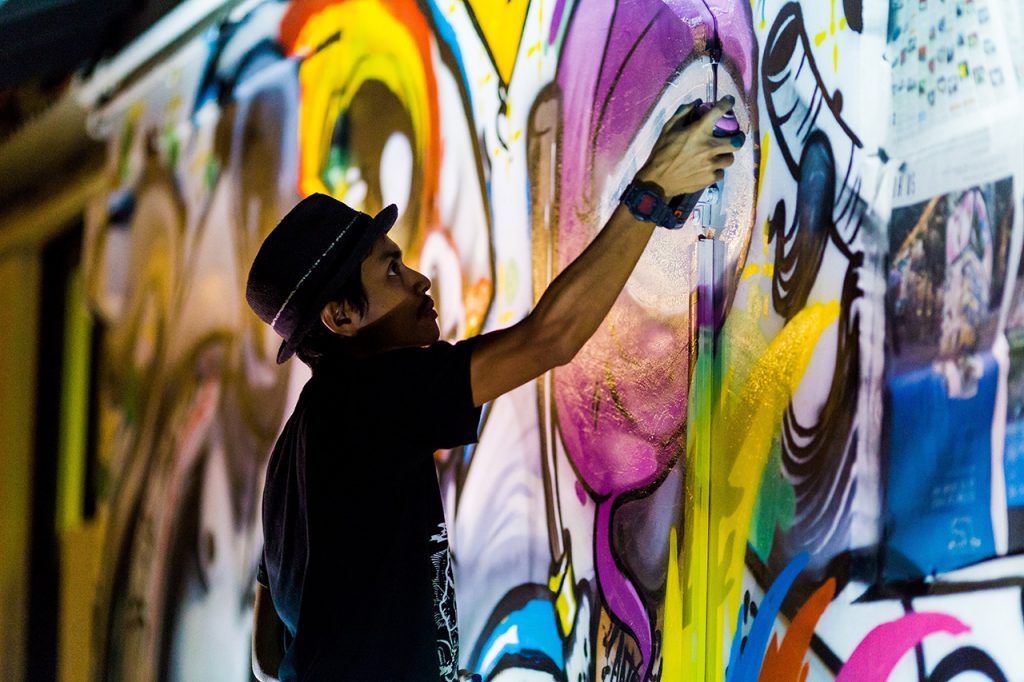
But it remains to be seen if the arts community, fragmented as it is, can be trusted to take the initiative and fight for their interests as a collective and not as distinct individuals.
A previous iteration of this article misreported that Janice Koh was the first arts NMP of Singapore. Ms Audrey Wong served from 2009 to 2011. We apologise for the error.
Have something to say about this story? Write to us at community@ricemedia.co

